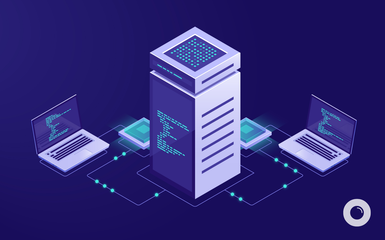Content Intelligence

Reading time:
minutes
In today's flood of content, it is no longer enough to simply produce “good content.” It is crucial to deliver the right content at the right time on the right channel to an increasingly fragmented target audience. This is where content intelligence comes into play: a data-driven approach that makes content strategies smarter, more efficient, and more relevant. But what exactly is behind it, and how can content intelligence be used in practice?
What is content intelligence?
Content intelligence refers to the use of data analytics, artificial intelligence, and machine learning to strategically plan, create, optimize, and evaluate content. It's not just about numbers, but how those numbers are used to make better decisions in content marketing.
Core functions:
- Identify relevant topics
- Understand target group behavior
- Optimize content formats and channels
- Predict performance
- Personalize content
In other words, content intelligence turns gut feelings into a robust strategy.
Identify trends before everyone else
In many editorial offices, topics are still chosen based on the principle of “What interests us or what have others done?” Content intelligence takes a more systematic approach:
- Analyze search data (e.g., via Google Trends, AnswerThePublic)
- Identify questions from the target group (via forums, chats, internal search queries)
- Uncover gaps among competitors (gap analyses with SEMrush, Ahrefs)
- Analyze user behavior (heat maps, click paths, session recordings)
This results in topics that are based on real needs rather than assumptions.
Content mapping along the customer journey
A central element of intelligent content strategies is mapping along the customer journey. The goal is to provide appropriate content for each phase, from the initial search for information to the final purchase decision.
Examples:
- Awareness: Plog articles, how-tos, infographics
- Consideration: Product comparisons, white papers, use cases
- Decision: Testimonials, price comparisons, free trials
Content intelligence helps to place this content in a targeted manner, measure its performance, and adjust it if necessary. This means that content is not only created, but also used strategically.
Optimize existing content in a targeted manner
Not all new content has to start from scratch. Many companies already have hundreds of blog articles, PDFs, or videos, but often without knowing what really works.
Content intelligence enables:
- Content audits: Which content performs well, which doesn't – and why?
- Structural optimization: Readability, structure, media share
- SEO optimization: Keywords, meta data, internal linking
- Content recycling: Repurpose successful content (e.g., blog articles as podcasts or infographics)
Tool tips:
- MarketMuse: Content gap analysis & semantic optimization
- SurferSEO: Data-driven on-page optimization
- Clearscope: Increase topic relevance with NLP
Think about content in context
Content is most effective when it appears in the right context, i.e., at the right time, for the right person, with the right message.
Content intelligence enables:
- Personalized content elements on websites, e.g., product recommendations or CTA texts
- Dynamic email content based on user behavior
- Content displayed according to industry, region, or user intent
This is where content intelligence meets marketing automation and becomes the heart of a hyper-personalized customer experience.
Predictive content & AI-generated insights
With the use of advanced AI models, content intelligence is evolving into a predictive strategy platform:
- Predictive analytics: forecasts about topics that will become relevant in the future
- Automated: topic clusters based on semantic analysis
- Content brainstorming with GPT models: suggestions, snippets, structural ideas
When combined with internal data (CRM, analytics, support tickets), this creates a highly relevant, continuously learning content machine.
From content to impact
Content intelligence helps companies turn a jungle of content into a clear, data-driven strategy. It not only delivers greater efficiency, but also greater relevance, personalization, and ultimately impact.
Those who not only produce content, but also manage it intelligently, gain a clear advantage in digital communication, whether in marketing, sales, or customer service.
The future does not belong to those who produce more content, but to those who create smarter content.




